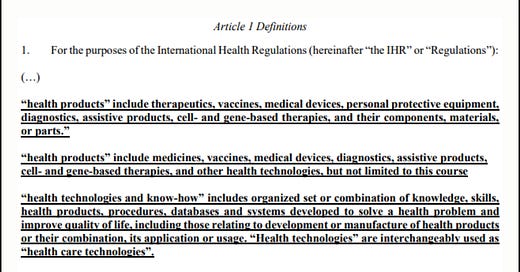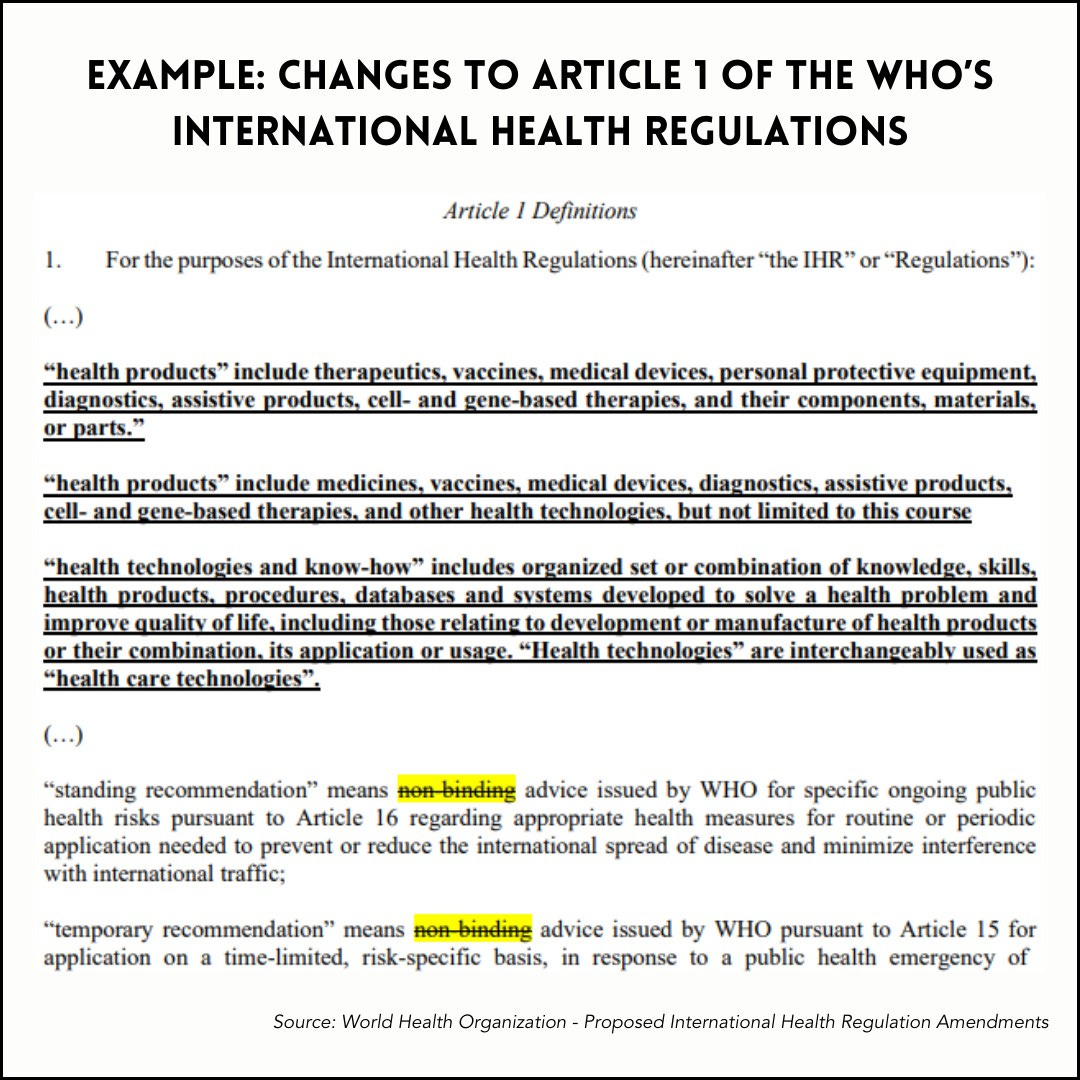Dear Family,
With nations converging at the World Health Organization (WHO) this May to vote on a legally binding treaty that will transform the global regime for responding to global health emergencies, there has never been a more vital time for Canadians to be aware of what is happening at the WHO.
Under the stated objective of creating a “stronger and more accountable WHO” in the aftermath of COVID-19, the proposed new pandemic accord will make the WHO stronger to “promote political commitment at the highest level” when the world is faced with the next global pandemic. This treaty is designed to compel compliance with future WHO directives.
This treaty will define a pandemic, which will then determine when the treaty’s rules kick into gear, which will trigger a global state of emergency, which will compel signatory nations, including Canada, to do likewise, putting into motion a domino of compliance measures that countries will be expected to keep. The treaty will be legally binding, meaning it will become a violation of international law should any nation choose to go against the WHO’s directives. While the WHO states that it will respect national sovereignty, the reality is that this treaty will legally compel action based on decisions that are made by unelected WHO technocrats when a public health emergency of international concern (PHEIC) is declared. Many Canadians are concerned about what happens during an emergency, as they remember the suspension of Charter rights during the COVID-19 pandemic. The way that we deal with pandemics and PHEICs will change once the Pandemic Treaty is approved.
Along with this treaty, more than 300 proposed amendments to the International Health Regulations (IHR) will be voted on — many of which will provide the WHO with the legal teeth needed to exercise its power and control whenever the next pandemic hits. Canada has already signed onto IHR amendments which resulted in shortening the timeframe to reject any new amendments (from 18 to 10 months). Even this seemingly minor change means it will be more difficult for countries to independently react and respond to what’s being proposed at the global level within a shortened timeframe.
When I started sounding the alarm on this treaty, I was either ignored or mocked. They called me a conspiracy theorist. The evidence and the facts are clear. This may well be a conspiracy, but it’s no theory. Read the changes for yourself and tell me what you think.
Below is an example of just one of the many hundreds of amendments being proposed that will change the nature of the WHO’s powers. The yellow highlights below show how these amendments change the role of the WHO from an advisory body that provides guidance to member states like Canada, to a decision-making authority setting mandatory responses to which nations like Canada must adhere.



